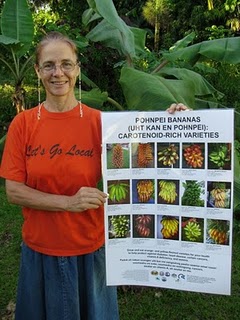More research on agriculture needed
Nature News reports on a meeting last week hosted by Jeff Sachs at Columbia University in New York. The idea was to create a global agriculture monitoring network, something he’s been promoting for a while, and all the big guns were there. 1 Sachs told the meeting that scientists “simply do not have the data they need to properly explore” how agriculture has changed the world. “We want to understand ecosystems and the people who are living in them,” Sachs said.
Good thinking. Sandy Andelman, of Conservation International, told the meeting about a pilot project in Tanzania.
In addition to basic environmental data about soils, nutrients and land cover, the project tracks agricultural practices. It also incorporates data about income, health and education that is maintained by the government. Andelman says that … initial results from the project have already prompted the Tanzanian government to adjust the way it zones agricultural land in the area.
That does sound good. I wonder, though, do the “agricultural practices” Andelman monitors have anything on the deliberate use of specific agricultural biodiversity to buffer against environmental shocks, or to enhance resilience in the face of pests and diseases, or to adapt to climate change? Maybe, though I’m not holding my breath. When Sachs first floated the idea, on which Andelman was a co-author, Luigi noted that it didn’t “mention the desirability of monitoring levels of agricultural biodiversity on-farm”.
Some of the meeting attendees want to go slow. The Gates Foundation thinks “a dozen or so” would be a good start to “get the ball rolling”. Sachs wants more. Nature News says he envisages “500 sites within two or three years”.
“We need to get this thing up and running,” he says, warning of the perils of endless organizational meetings. “I don’t want to spend ten years on this.”
Agreed, but it would be even worse, in my opinion, to build such a network, even if it does take 10 years, and not monitor the amount of agrobiodiversity and how farmers make use of it.
Nibbles: Swaziland, Traditional Knowledge, Climate change, Apples, Winged beans, Ambakkadan Cassava
- Queen Mother Ntombi Indlovukazi of Swaziland receives the FANRPAN 2011 Food Security Policy Leadership Award. Her son’s a caution too.
- Summaries of presentations at Informing International Policy on Traditional Knowledge, Mexico 2011.
- CGIAR book on “climate-proofing” crops critical to food security in the developing world.
- Happy Birthday to the McIntosh apple.
- Rhizowen’s winged beans fail to take flight.
- Sharefair hears how women farmers in India resurrected a favoured cassava.
- Sharefair hears dream-team pitch on frike, or as we prefer to say, freekeh.
Remembering Lois Englberger
 Very sad news. Lois Englberger, nutritionist and fighter for the dietary benefits of agricultural biodiversity, has died. We will remember her dedication, her helpfulness, and her cheerful personality. You can help to support her work with the Island Food Community of Pohnpei with a donation.
Very sad news. Lois Englberger, nutritionist and fighter for the dietary benefits of agricultural biodiversity, has died. We will remember her dedication, her helpfulness, and her cheerful personality. You can help to support her work with the Island Food Community of Pohnpei with a donation.
Nibbles: Cow beauties, Ethnopharmacology etc
- UK High Comissioner in Namibia visits big agricultural show, discovers “hundreds of words [for] the markings on a cow“.
- CTA Wageningen has a (new?) dossier on Ethnopharmacology, food production, nutrition and biodiversity conservation: Towards a sustainable future for indigenous peoples.